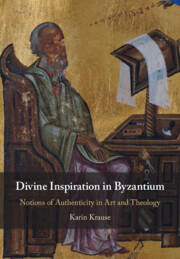Refine search
Actions for selected content:
2 results

Divine Inspiration in Byzantium
- Notions of Authenticity in Art and Theology
-
- Published online:
- 16 July 2022
- Print publication:
- 09 June 2022
Chapter 12 - Maimonides and the Problem(s) of Evil
- from Part V - Human Finitude
-
-
- Book:
- Maimonides' <I>Guide of the Perplexed</I>
- Published online:
- 18 June 2021
- Print publication:
- 01 July 2021, pp 223-244
-
- Chapter
- Export citation
